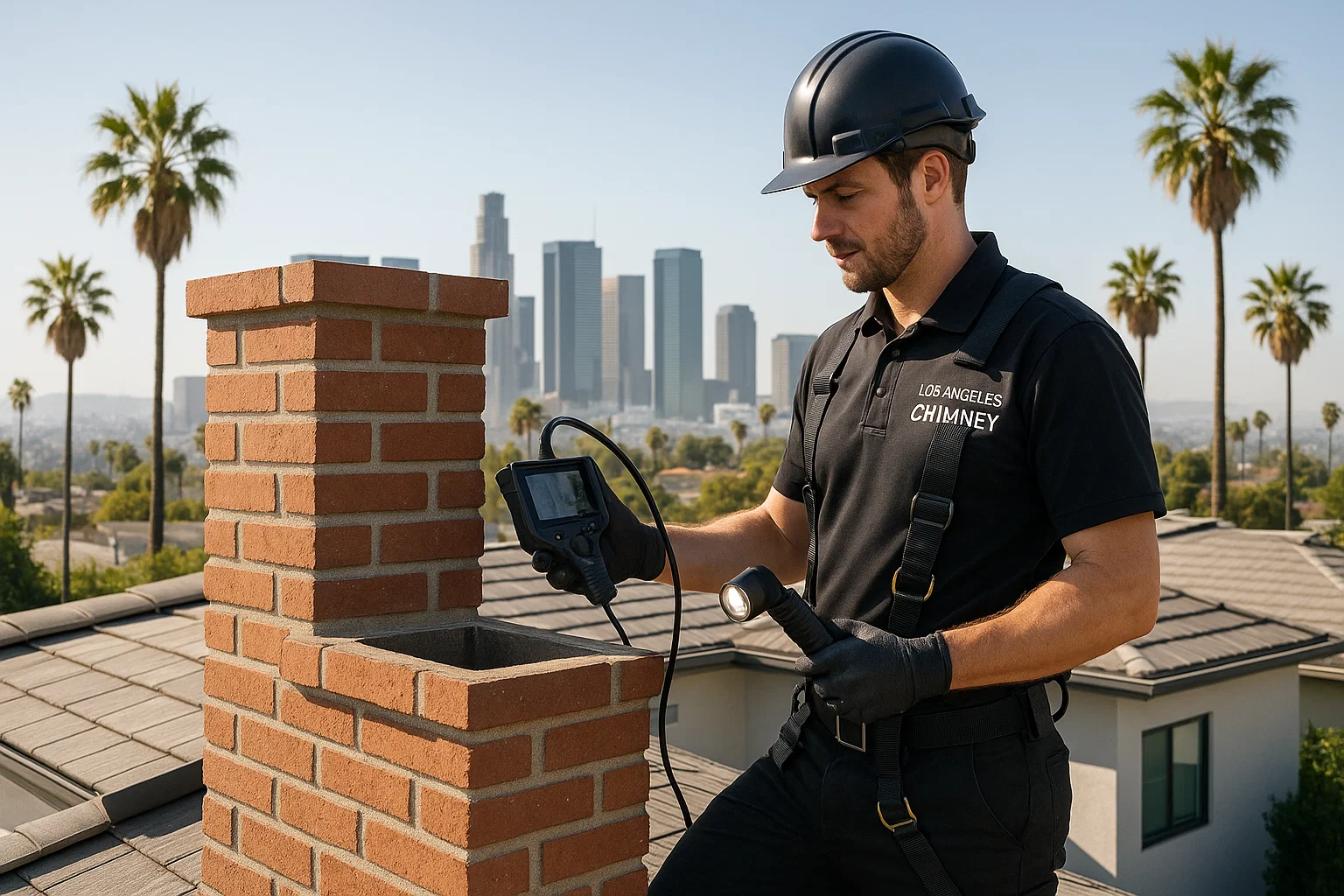All homeowners who have a fireplace or stove rely on the chimney to expel smoke, gas, and other waste products from the interior. All the while, soot, creosote, or silent damage can accumulate, posing safety hazards. Without regular maintenance, the system could become unsafe or inefficient. For this reason, having a professional chimney inspection losangeles performed is a necessary component of homeowner maintenance.
Why Does a Chimney Inspection Matter in Los Angeles?
The intent of an inspection is to inspect the entire system, from the flue to the fireplace, for damage or clog. In Los Angeles, residential dwellings have gas and wood fireplaces, which both need periodic examination. A certified chimney inspector makes sure the fireplace, stove, and chimney are safe to operate. A fireplace inspection is not a matter of looks—protects against dangers such as fire, faulty venting, or carbon monoxide leaks. Throughout America, in states like Connecticut, national safety agencies suggest yearly inspections on all chimneys.
“Chimney inspections are a very important safety service that prevent chimney fires and keep homes safe,” says one CSIA-certified expert.
What Common Issues Can Inspections Identify?
When experts inspect chimney systems, they usually identify problems the homeowner cannot see. Among the most frequent findings are:
Creosote accumulation: A very combustible waste product of wood burning that raises fire danger.
Flue cracks: Leaks through which gases escape into the dwelling.
Obstructions: Nesting material, trash, or accumulation that clogs smoke venting.
Water entry: Water ruins masonry, metal, and liners.
Shoddy repairs: Work not performed by certified professionals that undermines safety.
A sweep and inspection generally both inside and out. Experts will inspect dampers, stove attachments, and venting systems. Fireplace inspection services also check gas lines and safety equipment are operating correctly.
What Key Benefits Are There to a Professional Inspection?
There are several advantages that result from having a regular chimney inspection.
Enhanced safety: The inspection minimizes the likelihood of fire or gas danger.
Cost savings: Catching damage early saves costly repairs down the road.
Increased system life: Fireplaces and chimneys have a longer life when properly maintained.
Efficiency: Clean flues ensure better airflow, conserving fuel in wood-burning and gas-burning systems.
Documentation: Certified inspections offer great documentation for insurance or property sales.
Numerous professionals suggest pairing fireplace inspection with chimney cleaning close to you. Both services taken together guarantee chimneys are inspected and cleaned for optimal safety and functionality.
How Expensive is a Los Angeles Chimney Inspection?
The expense varies based on the extent of service needed. Industry experts employ three standard levels accepted throughout America, with CT and Los Angeles being part of them:
Level 1: A simple inspection of chimneys used under normal use.
Level 2: A camera inspection in case of property transfer, damage, or system modification.
Level 3: A full inspection that involves parts of the building to be opened.
Here’s an example pricing table:
Inspection Level Description Average Cost
Level 1 Standard check for routine use $100 – $250
Level 2 Camera and detailed inspection $250 – $500
Level 3_chip_andremove Structural inspection with removal $500 – $1,000+
Disclaimer: Prices subject to variation by company, system condition, and level of service. Homeowners should call for detailed quotes prior to scheduling.
What Key Features Define a Professional Chimney Inspection?
When choosing an inspector, there are several things to consider. A reputable chimney inspector must be certified, preferably by CSIA, to guarantee they adhere to accepted safety standards. Inspections must involve a complete visual examination, the use of latest equipment, and a comprehensive written report. Certified experts and professionals will use cameras to inspect chimney interiors, ensure the flues are safe, and inspect all components for cleanliness and performance.
A good service can also involve cleaning, as most inspections show soot or creosote that must be swept clean. Chimney sweepers and sweeps will typically team up to offer a dual service. Stoves, gas fireplaces, and conventional wood-burning fireplaces should be inspected. Whether it is a chiminey, chimmney, chimny, chimeney, chimne, chiminy, or even a chimmeny system, sweeps and inspectors certified make sure that all types of chimney are inspected and safe for use.
FAQS
How frequently must a chimney be inspected?
It should be inspected at least annually, or with increased frequency if the fireplace or stove is used a great deal.
Should a gas fireplace be inspected?
Yes. Even gas models need fireplace inspection to verify gas lines, venting, and safety mechanisms.
What is the distinction between cleaning and inspection?
An inspection ensures damage or hazards, while cleaning eliminates soot and creosote. Inspection and sweep often accompany each other.
Can I inspect a chimney myself?
Homeowners can look for gross defects, but only trained inspectors and sweepers can offer a professional-grade assessment.
What if problems are found?
The inspector can suggest repairs, further sweeps, or replacement of the flue liner based on the state of the system.
Conclusion
Chimneys might look straightforward, but they’re intricate systems that need regular maintenance. Silent damage, creosote buildup, or clogged flues can jeopardize homes if not addressed. It’s wise to book a professional fireplace inspection or chimney sweep and inspection to ensure safety, efficiency, and long-term dependability. Certified experts, inspectors, and sweeps ensure peace of mind with chimneys being properly cleaned, inspected, and ready for use. By employing an experienced and reliable chimney inspector, Los Angeles homeowners can avoid fire risks, prolong the life of their fireplace, and ensure the absolute highest level of safety for their families. Regular inspections are not a service—they are a responsible part of homeownership.
Read more: Chimney sweep and inspection.

